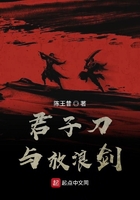The army of Ferdinand advanced in lengthened line, glittering along the foot of the mountains which border the Mediterranean, while a fleet of vessels, freighted with heavy artillery and warlike munitions, kept pace with it at a short distance from the land, covering the sea with a thousand gleaming sails. When Hamet el Zegri saw this force approaching, he set fire to the houses of the suburbs which adjoined the walls and sent forth three battalions to encounter the advance guard of the enemy.
The Christian army drew near to the city at that end where the castle and rocky height of Gibralfaro defended the seaboard.
Immediately opposite, at about two bow-shots' distance, stood the castle, and between it and the high chain of mountains was a steep and rocky hill, at present called the hill of St. Christobal, commanding a pass through which the Christians must march to penetrate to the vega and surround the city. Hamet ordered the three battalions to take their stations--one on this hill, another in the pass near the castle, and a third on the side of the mountain near the sea.
A body of Spanish foot-soldiers of the advance guard, sturdy mountaineers of Galicia, sprang forward to climb the side of the height next the sea, at the same time a number of cavaliers and hidalgos of the royal household attacked the Moors who guarded the pass below. The Moors defended their posts with obstinate valor. The Galicians were repeatedly overpowered and driven down the hill, but as often rallied, and, being reinforced by the hidalgos and cavaliers, returned to the assault. This obstinate struggle lasted for six hours: the strife was of a deadly kind, not merely with crossbows and arquebuses, but hand to hand with swords and daggers; no quarter was claimed or given on either side--they fought not to make captives, but to slay. It was but the advance of the Christian army that was engaged; so narrow was the pass along the coast that the army could proceed only in file: horse and foot and beasts of burden were crowded one upon another, impeding each other and blocking up the narrow and rugged defile. The soldiers heard the uproar of the battle, the sound of trumpets, and the war-cries of the Moors, but tried in vain to press forward to the assistance of their companions.
At length a body of foot-soldiers of the Holy Brotherhood climbed with great difficulty the steep side of the mountain which overhung the pass, and advanced with seven banners displayed. The Moors, seeing this force above them, abandoned the pass in despair. The battle was still raging on the height; the Galicians, though supported by Castilian troops under Don Hurtado de Mendoza and Garcilasso de la Vega, were severely pressed and roughly handled by the Moors: at length a brave standard-bearer, Luys Mazeda by name, threw himself into the midst of the enemy and planted his banner on the summit. The Galicians and Castilians, stimulated by this noble self-devotion, followed him, fighting desperately, and the Moors were at length driven to their castle of Gibralfaro.*
*Pulgar, Cronica.
This important height being taken, the pass lay open to the army, but by this time evening was advancing, and the host was too weary and exhausted to seek proper situations for the encampment. The king, attended by several grandees and cavaliers, went the rounds at night, stationing outposts toward the city and guards and patrols to give the alarm on the least movement of the enemy. All night the Christians lay upon their arms, lest there should be some attempt to sally forth and attack them.















